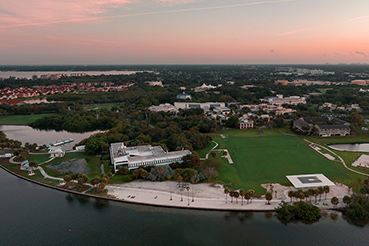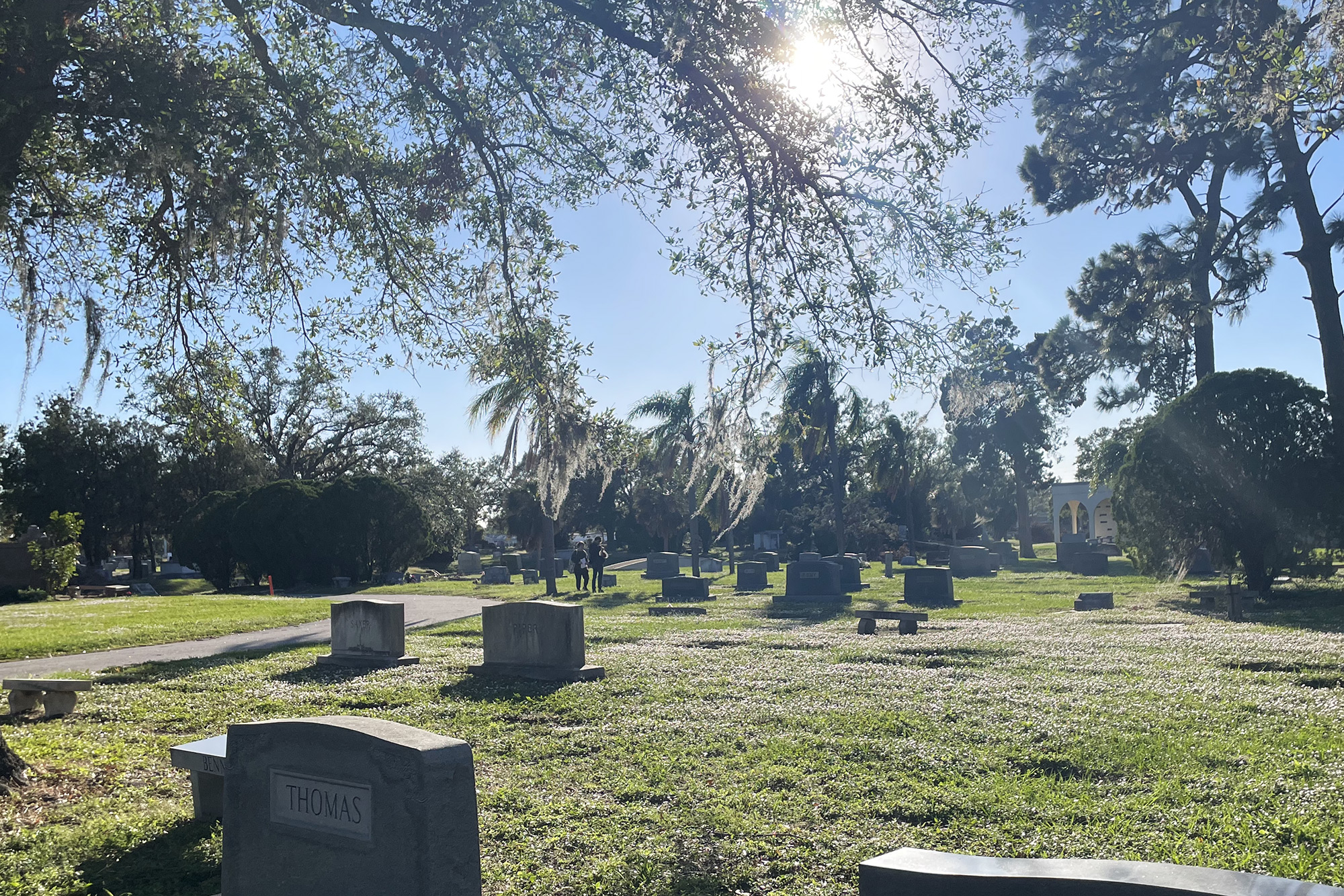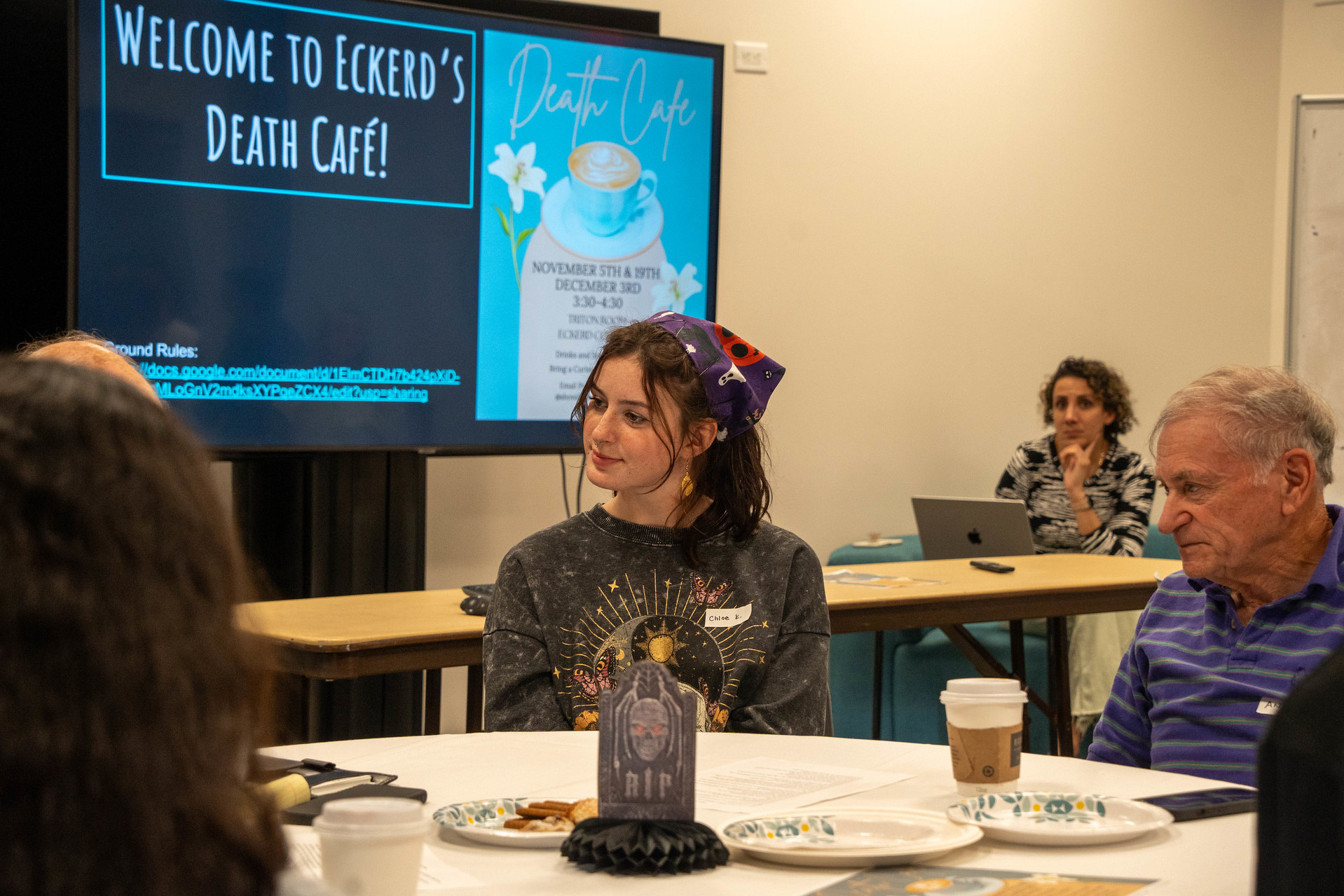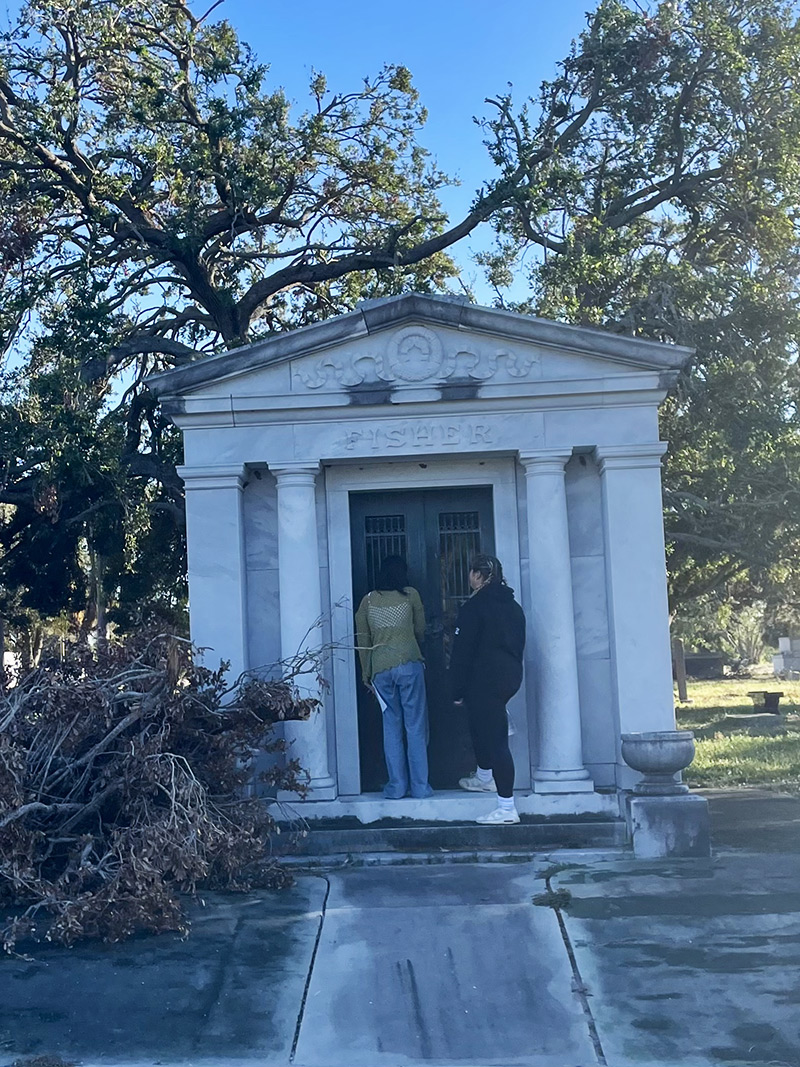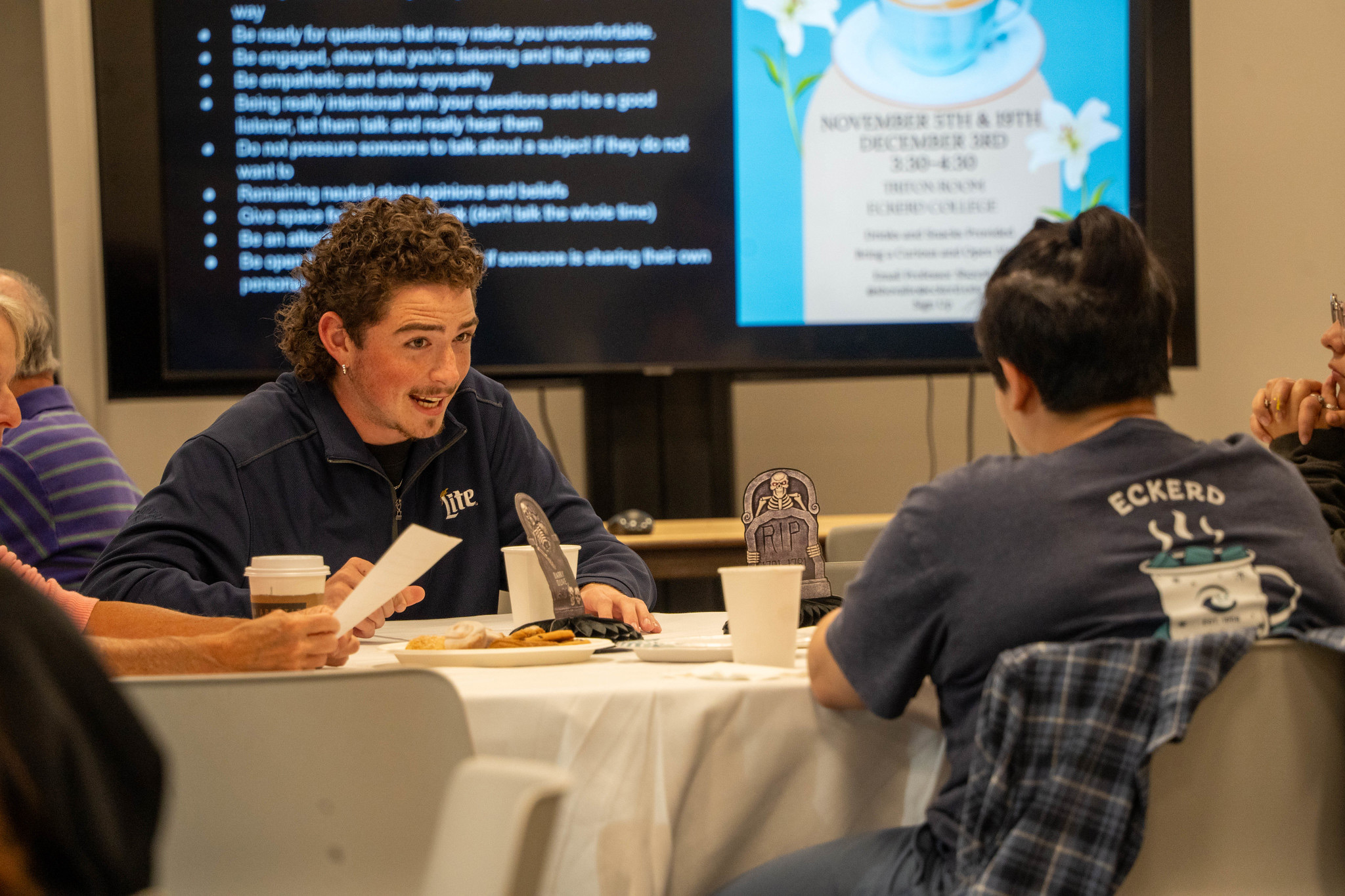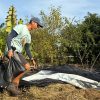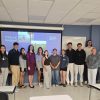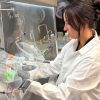This wasn’t your typical cafe. Yes, there were pastries, coffee and tea in the Faculty Dining Room on the Eckerd College campus late one afternoon in early December. But the centerpieces on the tables included drawings of skulls and skeletons, and the conversations revolved around topics such as how to console someone whose loved one has died, advanced directives and writing your own obituary.
This was a Death Cafe, an informal grouping of people who discuss end-of-life issues, and it was part of Tamar Shovali’s Death and Dying fall semester class. Shovali, who has a Ph.D. in lifespan developmental psychology from the University of Georgia, is an associate professor of human development at Eckerd and a gerontologist. She has included the one-hour Cafe as part of her course for the last three years. “It’s a cafe setting—a comfortable environment,” Shovali explains. “And it’s not about finding answers. It’s a group-directed discussion of death with no specific agenda, objectives or themes. And it’s intended to increase awareness of death with a view to helping people make the most of their lives.”
Shovali—who leads Eckerd’s Mentor Up program, a collaboration with AARP that brings students and older adults together to discuss how to better use electronic devices—was honored recently with Fellow status in the Gerontological Society of America’s Academy for Gerontology in Higher Education. The honor represents the highest class of membership within the society and is an acknowledgment of exceptional and continuing work in the field of gerontology.
“I decided to hold Death Cafes in this course because of its casual nature and the chance to give students an opportunity to practice what they’ve been learning all semester,” Shovali adds. “Conversations in Death Cafes range from leaving a legacy, to ghosts and the afterlife, to euthanasia and much more. Our Death Cafes this semester were supported by an ASPEC [Academy of Senior Professionals at Eckerd College] Intergenerational Grant.”
The concept of a Death Cafe originated with the Swiss sociologist and anthropologist Bernard Crettaz, who organized the first one in 2004. Described on the Cafe’s website as a nonprofit social franchise that has no staff, the groups also have “no intention of leading people to any conclusion, product or course of action.”
On this day, several dozen Eckerd students mingle with a dozen or so older adults. At one table, the topic is belief in an afterlife. “I was brought up Catholic and to believe in heaven and hell,” says Julieanna Acevedo Carrasquillo, a sophomore human development student from Yabucoa, Puerto Rico. “I want to believe that, but I don’t know. Reincarnation is intriguing as well.”
Across the table from Julieanna is Ernie Mahaffey ’68, who attended Eckerd when it was known as Florida Presbyterian College. He went on to a career in international business and entrepreneurship before retiring and becoming an active member of ASPEC. Ernie tells those seated at the table that the world has changed dramatically, and often not for the best. “But I’m impressed and pleased that the students are thinking long term,” he says later. “Not just about the next class.”
The Cafe is a microcosm of the course. “No matter our background or age, we all will experience death in one way or another,” Shovali says. “The course helps students articulate their own attitudes about death, learn how to support people across the lifespan in their experiences of loss and grief, make end-of-life plans and explore cultural death practices.
“This semester we took a field trip to a local cemetery to investigate the space for its role in memory, cultural expression and spiritual reflection,” she adds. “We also welcomed a death doula to discuss the dying process and how to give meaning to the end of life, and a lawyer to guide students through creating a living will.
“However, this course is as much about living as it is about issues related to the end of life. This is perhaps the most important yet paradoxical lesson of my course, that focusing on death leads us—in fact, forces us—to focus on life.
“I hope the students learn about our society’s death ethos, our uncomfortability with and denial of death, and how to engage others in conversation about death and dying to change the narrative,” Shovali says. “My ultimate hope is that students also learn that life is finite, and to value every moment. The most practical thing to have in the face of the inevitable end is an understanding of life.”
That message isn’t lost on Chloe Ketchum, a senior psychology student from Chicago who already has suffered the loss of several friends, teachers and relatives. “The Death Cafe was such a surreal experience, and I was a little scared,” Chloe says later. “Death is such a touchy subject.
“But Dr. Shovali taught us about grief, about acceptance, about just talking about losing someone. About how the different stages of grief are not linear—that you can be between different stages. And that loss comes in so many different forms. I also learned how to talk about death and to accept the fact that everyone views death differently. Especially in other cultures. In Mexico, for instance, they have the Day of the Dead, which is a holiday when people celebrate those who have passed on.
“I highly recommend taking this course, no matter what your major or minor,” Chloe adds. “Thanks to Dr. Shovali, it’s not as scary as you might think it is.”
Including ASPEC members and those who aren’t students or faculty to the discussion contributes another key element. “One of the best parts is having the interaction with people,” Julieanna says. “Sometimes people don’t want to be open to a conversation about death, but I heard conversations about ghosts and spirits and advanced directives and funeral plans. It helped me learn more about myself and become a more empathetic person. This class is going to be applicable to all aspects of my life.
“Death is a part of everyday life,” she admits. “And being able to have those really hard conversations and help people is a true blessing.”

